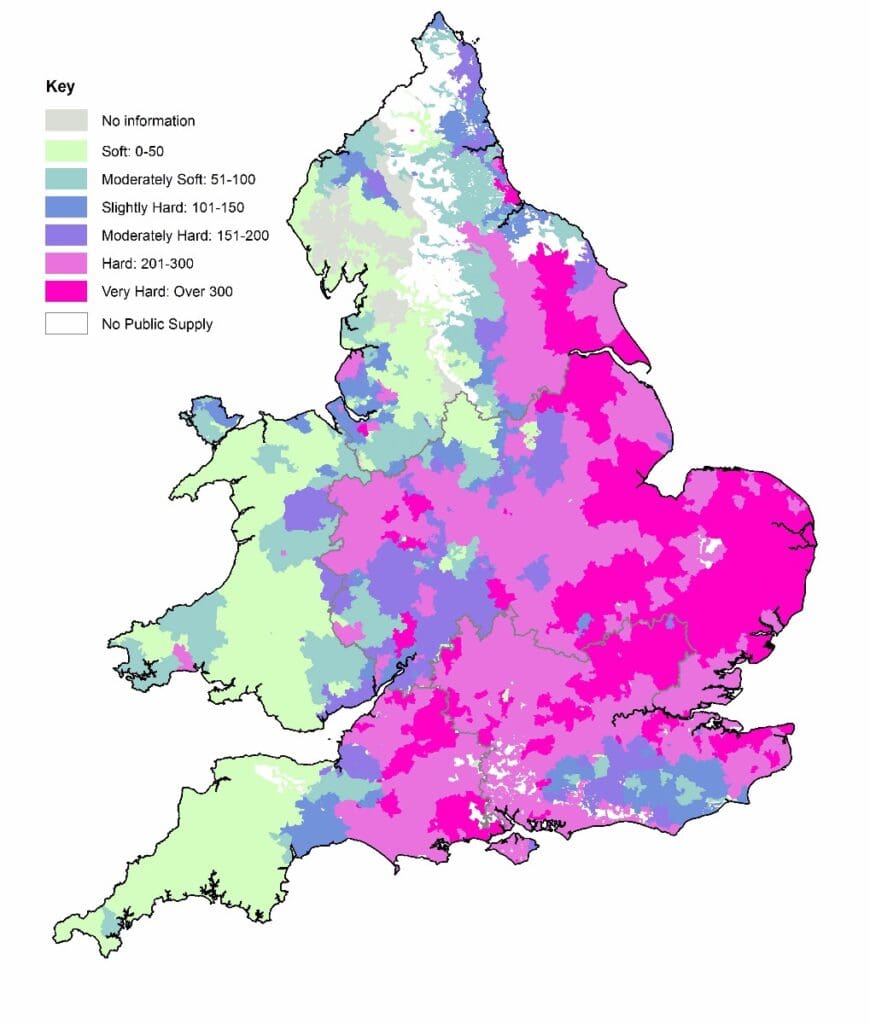Is My Water “Good Enough” for My Autoclave?
By: Priorclave
Categories: Health & Safety News

Labs often ask if they might not be better off running their steam autoclave from a “better” water supply, such as distilled water, RO water, “ultra-pure” water, and so on.
The answer is a resounding, “No!”
Tap water is “good enough” for your Priorclave autoclave. In fact, it is generally both the most economical and the preferred water source for your electrically heated lab autoclave (i.e., those autoclaves with an in-chamber heating element).
That said, you should be aware of how “hard” your water supply is in order to minimize maintenance calls and service disruptions.
Hard Water and Autoclaves: A Primer
“Hard water” is water high in minerals, principally calcium and magnesium. This usually arises from the local geology. For example, areas with limestone, chalk, or gypsum deposits will tend to have harder ground water.
In many parts of the world (including the UK and much of the EU), water hardness is measured in milligrams of calcium carbonate per liter of water (mg/L) or parts per million (ppm). These units are equivalent. In the UK water is “soft” when calcium carbonate measures at or below 50 ppm, and “moderately soft” from 51 to 100 ppm. Water measuring 101 to 150 ppm is “slightly hard,” while 150 to 200 is “moderately hard.” 201 to 300 is “hard,” and above 300 “very hard.”
Hard water is perfectly safe for eating, drinking, washing, and performing most research or industrial processes. (In fact, some studies even suggest there may be health benefits to drinking hard water.)
But hard water can increase wear and tear on appliances and equipment, especially those that heat water. This includes your autoclave.
The minerals that are abundant in hard water (especially calcium carbonate) tend to precipitate out of hot water. They then collect in the hottest part of your water system, like the heating element in your steam autoclave’s reservoir. There, these minerals form white deposits (called “scale” or “limescale”). Left unchecked, limescale creates an insulating layer that reduces energy efficiency. If unaddressed, your efficiency can drop by 20 to 30 percent. Limescale and other particulate can also accrete elsewhere in your autoclave, constricting plumbing, clogging valves, and interfering with the operation of water level sensors.
Determine the Hardness of Your Water Supply
Most of the UK has hard water. The water supply to about 60 percent of all homes (and an even greater percentage of labs and public buildings) is classified as hard water. This is particularly the case in the South and East of England, which has hard or very hard water due to the geology and mineral content of the soil.

[[Map Source: https://cdn.dwi.gov.uk/wp-content/uploads/2021/10/11171047/hardness-map.pdf ]]
An estimated 85 percent of Europe has hard water, although that varies quite a bit by region. For example, while around 80 percent of French public water systems have hard water, the water supply throughout Iceland is extremely soft and naturally quite pure.
If you are planning on installing a steam autoclave—or have one already—now is the time to check your water hardness. In the UK there are many online tools that can be used to look up the water hardness in your area by postal code (to find one, try searching “water hardness in my area uk” using your preferred search engine). Alternatively, you can get a water hardness test kit. These are available at most hardware stores and many pet supply stores that cater to those who keep aquariums. You can also order a test kit online. Priorclave is pleased to offer free water quality test kits to labs (subject to availability). Please contact us for details. The Brita filter company will also send free test kits to potential customers in the UK and some other regions.
When Does Water Quality Create Problems?
If you have water hardness greater than 50 ppm, you’ll want to take action. Many labs already have distilled and ultra-pure water supplies available, and are tempted to simply switch their autoclave over to that “better” water supply. Do not do so! Unless your autoclave has been purpose-built to run from these types of water supply, that will be a costly mistake.
There are two primary reasons for this. First, extremely pure water prematurely corrodes the copper pipework and brass valves and fittings used in an autoclave. Second, an autoclave’s heater protection and water level controls use water conductivity to monitor water levels. Extremely pure water is low enough in conductivity that these sensors often cannot accurately detect water levels.
Instead, you can easily nip maintenance headaches in the bud by installing a consumer-grade water softener. In most cases, that water softener will pay for itself in the first six months, simply by reducing unnecessary service calls and avoiding all the headaches of unexpected downtime.
Priorclave recommends the use of a sodium ion exchange water softener. This will remove calcium carbonate (reducing limescale formation) while keeping water conductivity at appropriate levels. When purchasing a water softener, be sure to work with a reputable supplier. It should be installed only by a qualified plumber. In the UK, such a plumber will be a member of a recognised Trade Association (such as the Institute of Plumbing).
Keeping Your Autoclave in Top Condition
Investing in proper water treatment goes a long way toward trouble-free operation, but it’s no substitute for a proper draining and flushing regime. In all situations, we recommend regularly cleaning your autoclave chamber and heating elements. This cleaning regimen doesn’t take much time out of your schedule, yet yields significant savings over time and prevents a great deal of frustration.
Priorclave’s team of experts is committed to your satisfaction and is ready to answer any questions you might have. Contact us today for answers and support!

